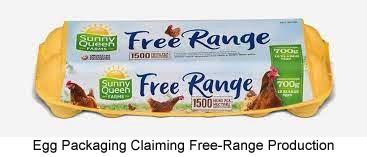A USDA-AMS memorandum originally issued in January 2011 and re-circulated in April 2017, permits temporary confinement for flocks producing under the Organic Certified Program. The original memorandum under signature of Miles V. McEvoy, Deputy Administrator of the USDA, notes, “Temporary confinement may be appropriate under certain conditions such as when low or highly pathogenic avian influenza is detected in an area. Organic poultry maybe confined on a temporary basis in areas in proximity to low or highly pathogenic avian influenza findings. Temporary confinement can be done without compromising the organic status of the certified operation under these conditions.”
 The memorandum was re-issued by USDA-AMS on March 25th under the heading, “Allowed Actions To Respond To Risks From Highly Pathogenic Avian Influenza”. Confinement is a necessary precaution to prevent exposure to AI virus shed by waterfowl currently migrating along the Atlantic and Mississippi flyways. Risk of outdoor exposure is evidenced by the number of backyard flocks that have been confirmed as infected with the high probability of other flocks that were exposed and never diagnosed.
The memorandum was re-issued by USDA-AMS on March 25th under the heading, “Allowed Actions To Respond To Risks From Highly Pathogenic Avian Influenza”. Confinement is a necessary precaution to prevent exposure to AI virus shed by waterfowl currently migrating along the Atlantic and Mississippi flyways. Risk of outdoor exposure is evidenced by the number of backyard flocks that have been confirmed as infected with the high probability of other flocks that were exposed and never diagnosed.
The status of flocks producing eggs that are advertised and sold as “pasture raised” or “free-range” with images or text on cartons, represents a different situation. It will not be long before an enterprising lawyer brings a class action lawsuit against one or more producers or marketers of eggs claiming deceptive advertising if flocks do not have free access outside barns.
As noted in the March 25th edition of EGG-NEWS, cage-free-flocks in the U.K. have been confined to barns since November and their eggs can no longer be marketed as “free-range”. Notices to this effect are displayed in stores at point-of-sale, although it is unknown whether retailers have reduced shelf prices. Members of the U.K Free-Range Egg Producers’ Association are requesting higher prices from retailers claiming an “imminent implosion” of their segment of the egg industry. Unfortunately prices are established by supply and demand in free-market economies and not by entreaties. The danger to producers of these high-priced eggs is that consumers will find that there is no difference in perceived quality between free-range and barn eggs and will be disinclined to pay a large differential for a housing system when free-range eggs once more become available in the U.K.
If U.S. producers hold hens in barns and claim “free-range” or “pasture-raised” status, action by the FTC or lawsuits should be expected, especially if barn-confinement extends over months as is anticipated.